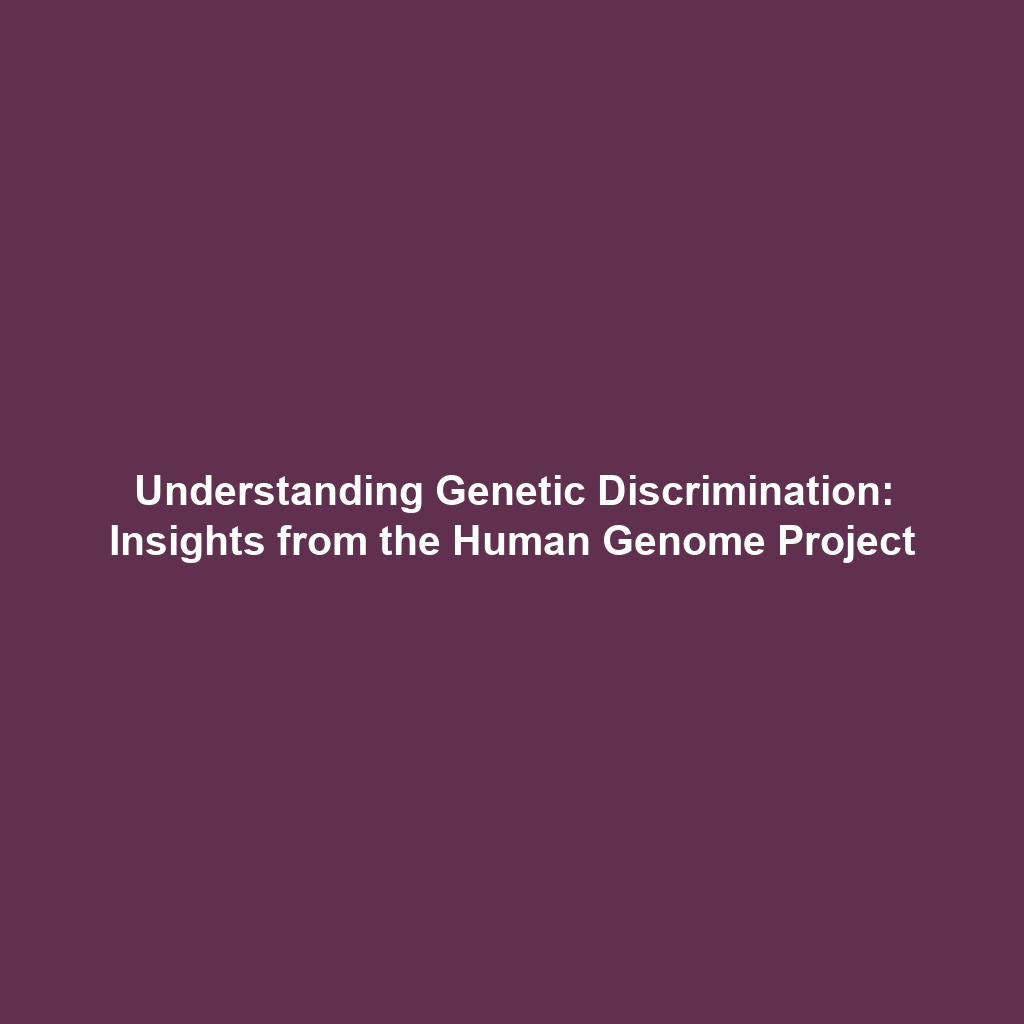The Debate Over Patenting Genes: Should Human Genes Be Patentable?
The question of whether human genes should be patentable remains a contentious issue in the realm of biotechnology and genetic research. This debate is deeply intertwined with the implications of the Human Genome Project (HGP), which successfully mapped the human genome and opened new avenues for genetic research and therapeutics. As the medical landscape evolves, understanding the potential ramifications of gene patenting on innovation, accessibility, and ethical considerations has never been more significant.
Key Concepts
The debate over gene patenting involves several critical concepts:
- Gene Ownership: The central question of who owns a particular gene and the implications of that ownership on research and development.
- Intellectual Property Rights: Legal frameworks governing how discoveries are protected and commercialized in the biotechnology sector.
- Impact on Innovation: Evaluating whether patenting genes encourages or stifles innovation within the biotechnology industry.
- Accessibility and Equity: Considering how gene patents may affect access to genetic tests and therapies for various populations.
These concepts are particularly relevant to the broader discussions spurred by the Human Genome Project as it relates to the collision of science, law, and ethics in the life sciences.
Applications and Real-World Uses
The outcomes of the debate over patenting genes have significant real-world applications:
- Genetic Testing: Companies develop tests to identify genetic disorders, but patent ownership over genes can limit the availability of testing options.
- Therapeutic Development: Genetic patents can influence the ability of researchers to develop new drugs and therapies based on genetic information.
- Personalized Medicine: The rise of personalized medicine often hinges on access to patented genetic information, impacting patient care efficacy.
Understanding how these applications interact with the implications of the Human Genome Project is crucial for future advancements in genetic research.
Current Challenges
Several challenges and limitations arise when studying the patentability of genes amid the advancements of the Human Genome Project:
- Legal Ambiguities: The overlapping legal definitions surrounding what constitutes a patentable gene remain uncertain.
- Ethical Dilemmas: Balancing private ownership of genetic information against public access to essential medical advancements.
- Impact on Research Collaboration: Patent restrictions may hinder collaboration among researchers and institutions.
Addressing these issues will be vital for navigating the future of genetic research and technology.
Future Research and Innovations
Looking ahead, several exciting innovations and areas of research aim to clarify the debate over patenting genes:
- CRISPR Technology: Innovations in gene-editing technology could change how we perceive gene ownership and intellectual property.
- Open Access Initiatives: Movements toward making genetic data more open could challenge existing patent agreements.
- Regulatory Frameworks: Expanding discussions surrounding the regulation of gene patents could lead to new policies that foster innovation.
These advancements could redefine the landscape of genetic research in the context of the Human Genome Project.
Conclusion
The debate over the patentability of human genes is a multifaceted issue that implicates legal, ethical, and scientific considerations. As the Human Genome Project continues to influence genetic research, it is essential to engage in meaningful conversations about the impact of gene patenting on innovation, accessibility, and public health. To delve deeper into the ongoing developments in the field of genetics, explore more articles on genetic research and intellectual property rights.

